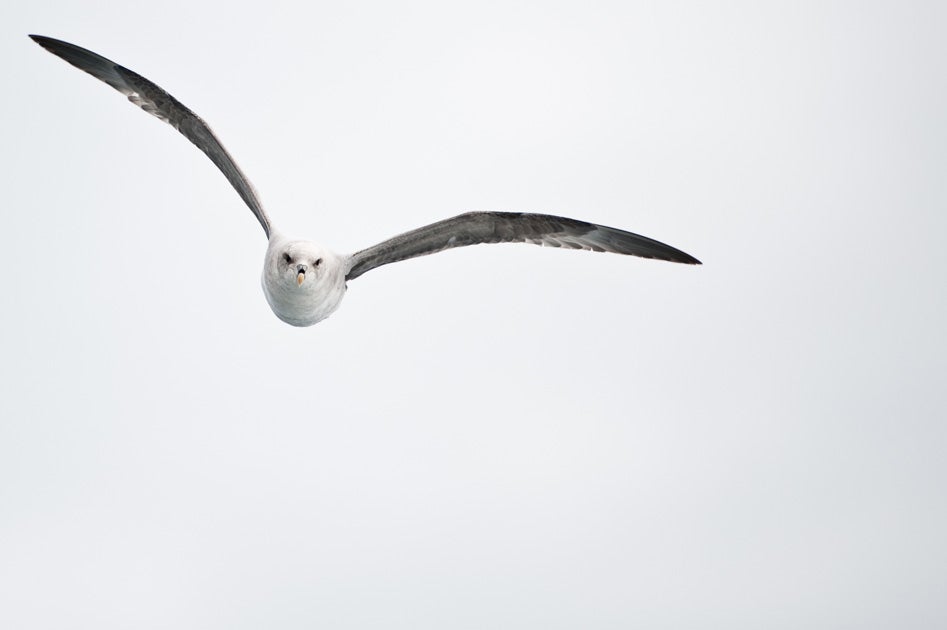Third of seabirds in North Sea suffering 'widespread breeding failure', warns report
'Marine litter, in particular plastic, is abundant on beaches, in the water column and on the seafloor,' report on health of north-east Atlantic says

Your support helps us to tell the story
From reproductive rights to climate change to Big Tech, The Independent is on the ground when the story is developing. Whether it's investigating the financials of Elon Musk's pro-Trump PAC or producing our latest documentary, 'The A Word', which shines a light on the American women fighting for reproductive rights, we know how important it is to parse out the facts from the messaging.
At such a critical moment in US history, we need reporters on the ground. Your donation allows us to keep sending journalists to speak to both sides of the story.
The Independent is trusted by Americans across the entire political spectrum. And unlike many other quality news outlets, we choose not to lock Americans out of our reporting and analysis with paywalls. We believe quality journalism should be available to everyone, paid for by those who can afford it.
Your support makes all the difference.More than a third of seabirds in the North Sea and about a quarter of those in the Celtic Seas have suffered from “widespread breeding failure”, according to a new report.
Marine birds are used as a way to gauge the health of the other sealife, as when they feed they are essentially surveying the populations below the water.
An assessment by Ospar, a body set up by 15 governments and the European Union to protect the marine environment of the North-East Atlantic, found that species such as black-headed gulls, herring gulls, black-legged kittiwakes, Arctic skuas, common terns and Sandwich terns were among those experiencing breeding failure between 2010 and 2015.
For most birds, widespread breeding failure is said to have occurred if the proportion of colonies producing almost no chicks goes above five per cent.
The Ospar report said: “For the six-year period, widespread seabird breeding failures frequently occurred in 35 per cent of species assessed in the Greater North Sea, 25 per cent in the Celtic Seas and 44 per cent in the Norwegian parts of the Arctic Waters.
“In the Celtic Seas and Greater North Sea, none of the six water column feeders showed frequent and widespread breeding failure during this period.
“In contrast, a third of surface feeders in the Celtic Seas and half the surface feeders in the Greater North Sea showed frequent and widespread breeding failure during the six year study period.”
Plastic pollution is also a major problem, the report said.
“Marine litter, in particular plastic, is abundant on beaches, in the water column and on the seafloor,” it said.
Some 58 per cent of North Sea fulmars were found to have more than 0.1 grams of plastic in their stomach, far above the target figure of 10 per cent.
“This reflects the abundance of floating litter in their environment,” the report said.
“Fulmar populations in the North Sea are currently in decline, but the causes of the decline are not well understood.
“Ingestion of plastic litter is recognised as a potential threat contributing to the status of fulmar populations, given that it is probable that sub-lethal effects of reduced body condition and health, affect a significant proportion of individuals in the population.”
Dr Lyndsey Dodds, head of marine policy at WWF-UK, said the Ospar assessment showed that “our seas and oceans remain on the life-support machine”.
“From the persistence of plastics through to harbour porpoises being accidentally entangled in commercial fishing gear, we are failing to protect our seas and oceans properly even though they are so important for our health and livelihoods,” she said.
It is not expected that the UK will be classed as having a ‘good’ environmental status for its waters by 2020.
Dr Dodds said this “might not come as a surprise but it should cause alarm”.
Much of the legislation designed to protect the marine environment comes from the European Union, which means it must be transferred into UK law as part of the Brexit process.
Dr Dodds said, in addition to doing this, the UK should “increase the ambition of our action to urgently and collectively address the many challenges facing our seas and oceans like the growing demand for resources such as fish, increased shipping and pollution, and climate change”.
On Monday, Thérèse Coffey, the Environment Secretary, said the UK was “a global leader in protecting beaches, oceans and marine life around the world”.
“Our seas are critical to the future of our planet – they supply the oxygen we breathe, absorb the carbon dioxide we produce, and provide us with a magnificent array of marine species and habitats. That’s why we must act now to protect them for future generations,” she said.
The 5p plastic bag charge had been a “great step forward, cutting the number of bags found on beaches by nearly half”, she said. Further work to reduce plastic packaging and ban “harmful” microbeads was underway.
“I am determined for us to remain a heavy-hitter on the marine world stage,” Ms Coffey added.
Join our commenting forum
Join thought-provoking conversations, follow other Independent readers and see their replies
Comments